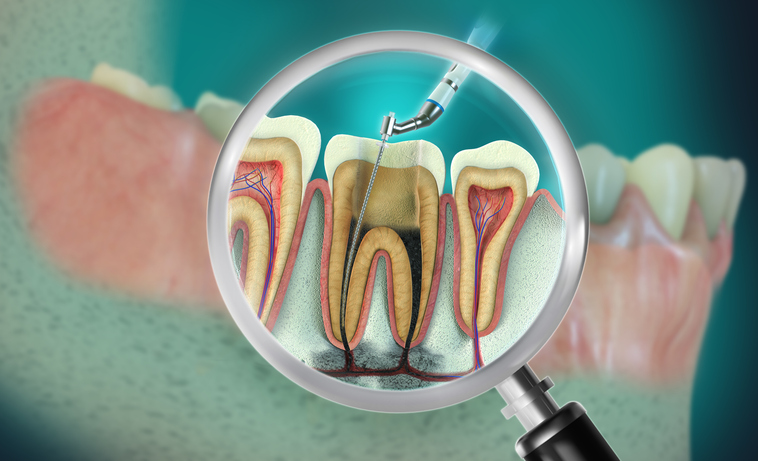
Controlling Enterococcus faecalis infections in root canals

Mesoporous silica nanoparticles carrying nano-silver and chlorhexidine could have antimicrobial properties that could improve endodontic outcomes.
Persistent microbial infections — particularly those caused by the bacteria Enterococcus faecalis — can result in treatment failure following endodontic procedures.
In a study published in the Journal of Endodontics, researchers examined the antimicrobial efficacy of the silica nanoparticles against planktonic Enterococcus faecalis.
The researchers found that the bacteria’s growth was inhibited at a minimal inhibitory concentration value of 25 micrograms per milliliter. Further, the silica nanoparticle concentration’s inhibition of Enterococcus faecalis biofilm formation was dependent on the reduction of lactic acid, sparse biofilm structure, reduced viable bacteria percentage and the suppression of several genes. Seven-day sealing of the silica nanoparticles led to a significant decline in bacterial counts compared with saline control.
The researchers determined that mesoporous silica nanoparticles carrying nano-silver and chlorhexidine may be effective at inhibiting and eliminating Enterococcus faecalis bacteria from root canals. Treatment with the silica nanoparticles could potentially be implemented for intracanal infection control.
Read more: Journal of Endodontics
The article presented here is intended to inform you about the broader media perspective on dentistry, regardless of its alignment with the ADA's stance. It is important to note that publication of an article does not imply the ADA's endorsement, agreement, or promotion of its content.